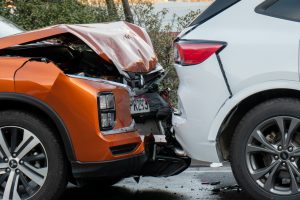Just like every other state, car accidents in California are rather common, resulting in serious injuries and even fatalities. The most notable factor is that these cases are handled through California’s “at-fault” system, suggesting that the insurance company of the responsible party will cover the damages.
Identifying the person at fault is vital in these collision cases. It is vital to seek legal assistance to simplify the process of claiming injuries from a car accident. Here’s more about how a lawyer can make a difference in car accident cases in California.
What is Comparative Fault Law?
Also known as comparative negligence, the comparative fault law is a legal doctrine designed to apportion fault among everyone involved in a car accident. This is different from contributory negligence where any fault by the plaintiff could bar recovery.
Comparative fault allows you to recover damages even if you’ve been partially responsible for the injuries. You must find legal help when involved in a traffic collision. Be sure to contact someone who is experienced in car accident laws. A good idea is to contact the Shirvanian Law Firm, where experts work directly with you to ensure you get the maximum compensation for your injuries. The best part is that you pay nothing until they’ve reached a settlement in your case.
Understanding the “pure comparative fault” system in California is always the key to getting maximum compensation. Essentially, it allows the injured party to secure compensation even if they’ve been partially involved in the accident. It works by assigning a “percentage of fault.”
For instance, if you’ve rear-headed a car, you're generally the one at fault. However, if the collision was due to the front driver suddenly stopping without reason, they might have to share some blame. If you were 20% at fault, you would still be compensated, but the amount will be reduced by that percentage.
The Role of Lawyers in Comparative Fault Cases
In order to determine the level of responsibility, courts consider evidence, such as witness statements, police reports, and adherence to traffic laws. Only experienced lawyers understand all these legalities and use their skills when allocating fault.
It means lawyers can take a case and pursue compensation even if they know their client bears significant fault. If the client is 90% at fault, they can still recover 10% of the damages. Only a lawyer can help achieve that while carefully assessing their client’s fault percentage.
Another reason to work with car accident lawyers is due to their sound negotiation skills. Their experience helps them calculate damage, including lost wages, medical expenses, pain and suffering, and future costs. Once they have quantified damages, they can then negotiate with insurance companies, which is something an individual just can’t handle.
If it goes to court proceedings, lawyers manage everything and present their case while cross-examining witnesses to influence fault allocation decisions and get what’s best for their client.
Endnote
No matter how careful you are, car accidents can happen, and when they do, it’s important to know the laws to ensure you get compensated for your injuries. In California, you must work closely with your lawyer even if you think you are partially at fault. Pick an experienced lawyer and they will take you through all the complexities, making it possible to get the right compensation after an accident.






















